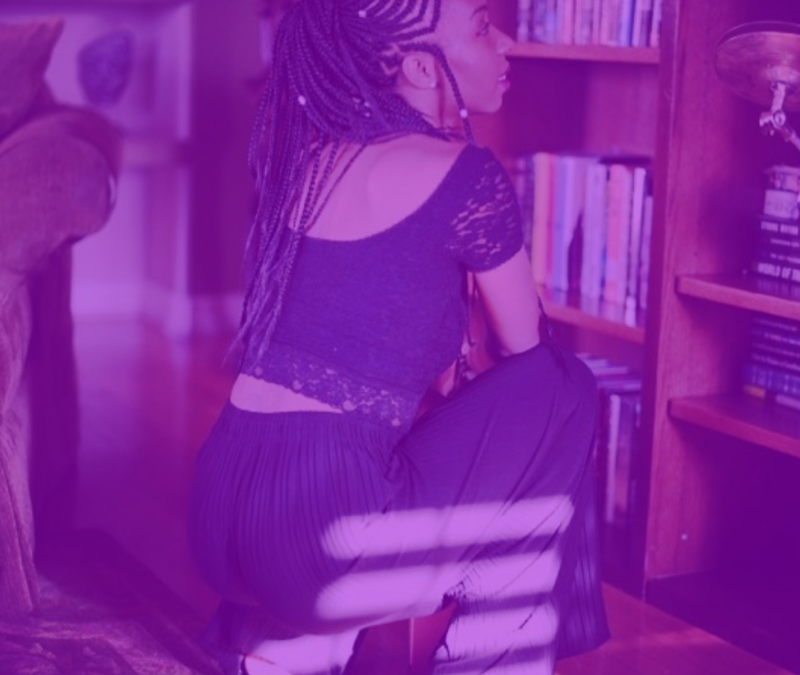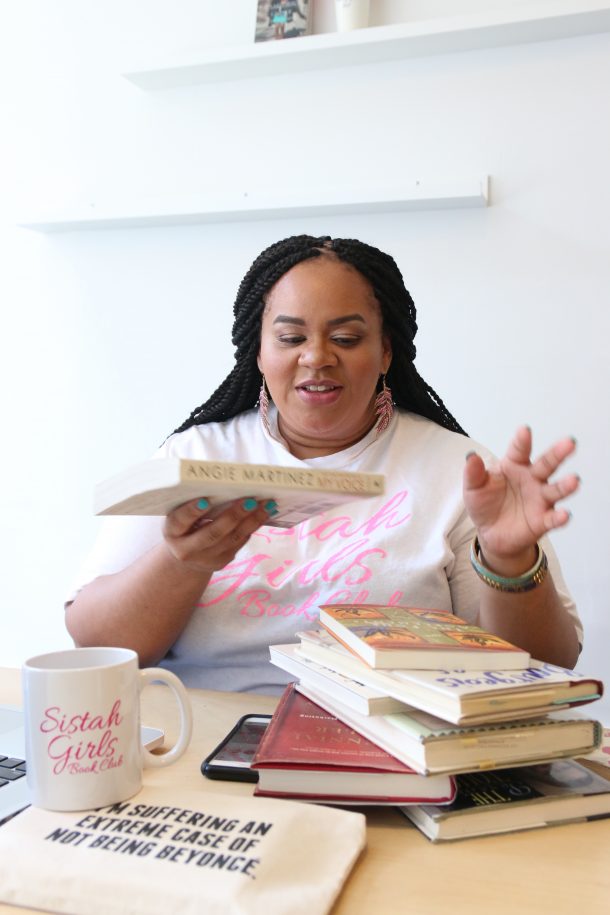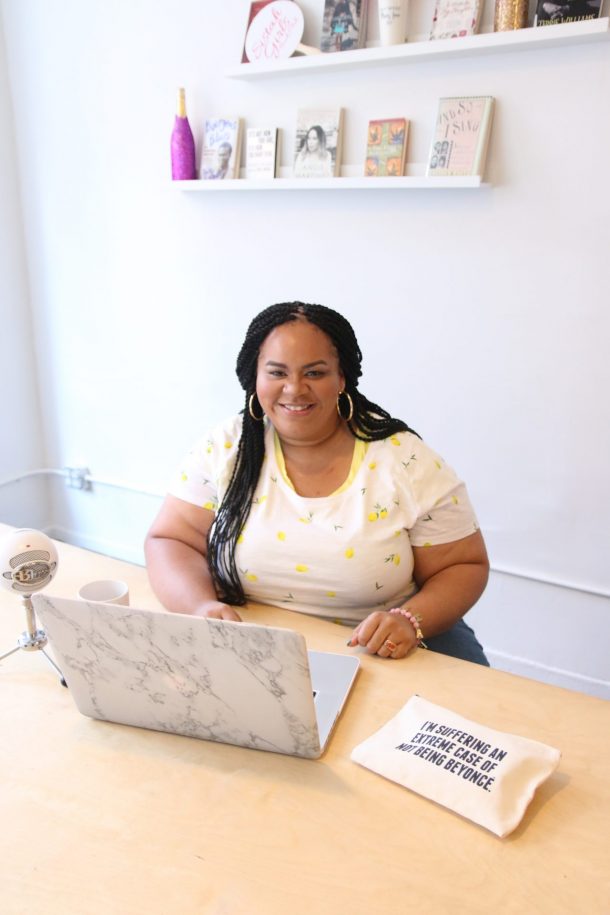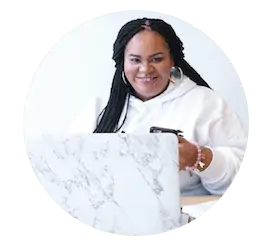Gathered in a Lecture Hall, on a Sunday.
There are two large black and white periodic tables on both walls to the right and left of me. We’re in a Science class but today we won’t be learning about the elements.
On this Sunday, in particular, I made it my mission to attend this year’s Los Angeles Times Festival of Books. I have only been residing in Inglewood California for two years. It did not take long for me to learn about the Los Angeles Festival of Books by word of mouth.
Missing this great event on the Campus of the University of Southern California (USC) last year made me stay on high alert for this year to come. And when I saw that the Well- Read- Black- Glory Edim and the Executive Director of the National Book Foundation Lisa Lucas, were on the conversation panel I just knew I had to attend.
“Relatable, when you don’t see yourself reflected you tend to search.” Glory spoke out to us. Like many of us Sistahs in this club, our passion for women of color in literature means a lot to us because growing up in books we were under-represented. As Glory and Lisa confessed, I too remembered reading Little Women, American Girl, and Western Heights, thinking “yes these books are great and all but where am I?”
As I thought about the books I’d read in my childhood Lisa asked the audience a question.
“If you have read To Kill a Mockingbird, raise your hand.” She instructed. Almost everyone in the room raised their hands.”Ok.” She continued. “Raise your hands if you read The Bluest Eye by Toni Morrison.”
Only 15 hands lifted in the air this time.
“My point exactly,” Lisa spoke out. Continuing to add the importance of reading literature written by people of color and not just sticking to your preferred genre and race.
I believe the point that she was trying to express was, justice is not granted to people of color to have their stories told by other races, but other races could read more of our stories by broadening their book collections to include writers of colors.
By doing this Glory and Lisa agreed that if most readers expanded their reading preferences, better understanding and relatable conversations would be a result.
We were all silent after that. Only speaking for myself I see the importance of being an inclusive and the essence of reading. I was really proud to hear and witness both women advocating for writers of color.
After leaving this conversation I left the room feeling refreshed, but there was a question that was asked that stuck in my heart.
The question was “What book changed your life”
So Sistahs I ask the same question to you.
What book changed your life? Comment Below!



